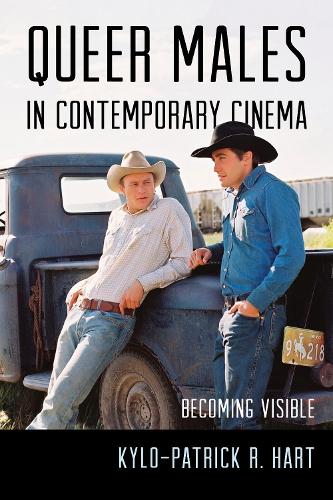
Queer Males in Contemporary Cinema: Becoming Visible
(Paperback)
Publishing Details
Queer Males in Contemporary Cinema: Becoming Visible
By (Author) Kylo-Patrick R. Hart
Scarecrow Press
Scarecrow Press
4th April 2013
United States
Classifications
Professional and Scholarly
Non Fiction
LGBTQIA+ Studies / topics
791.43086642
Physical Properties
Paperback
196
Width 153mm, Height 227mm, Spine 15mm
286g
Description
Over the past several decades, mainstream films have gradually featured queer content and characters. Depicted covertly at first, these characterizations have become much more prominent in recent years, most notably in such films as Philadelphia, Boys Dont Cry, and Brokeback Mountain.
In Queer Males in Contemporary Cinema: Becoming Visible, Kylo-Patrick R. Hart explores both latent and manifest representations of queer males in noteworthy cinema from the mid-20th to the early 21st century. Hart examines films pertaining to bisexual, gay, and transgender men, as well as transsexuals, transvestites, queer people with HIV/AIDS, queer teens, and others. Throughout, this book continually reminds readers that both mainstream and independent films communicate, reinforce, and perpetuate culturally pervasive notions of normalcy, deviance, and social otherness, in ways that frequently have realand sometimes detrimentaleffects on actual people.
Covering a range of films, including From Here to Eternity, The Boys in the Band, Saturday Night Fever, Cruising, Point Break, The Doom Generation, Boys Dont Cry, Hedwig and the Angry Inch, Kinsey, Brokeback Mountain, Transamerica, and Shortbus, this book shows not only how much has changed since the mid-20th century, but also how much has remained the same. Queer Males in Contemporary Cinema provides perceptive insights for students and academics interested in film history, cultural studies, gender studies, media studies, popular culture, and LGBTQ studies.
Author Bio
Kylo-Patrick R. Hart is chair of the Department of Film, Television, and Digital Media at Texas Christian University. He is the author or editor of several books about media, including The AIDS Movie: Representing a Pandemic in Film and Television (2000), Film and Sexual Politics (2006), Film and Television Stardom (2008), and Images for a Generation Doomed: The Films and Career of Gregg Araki (2010).
